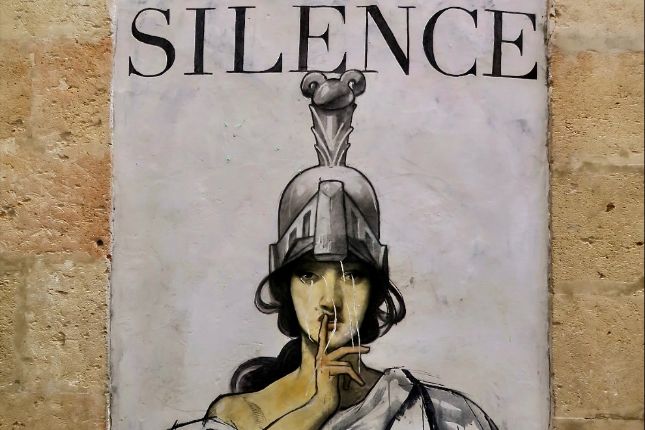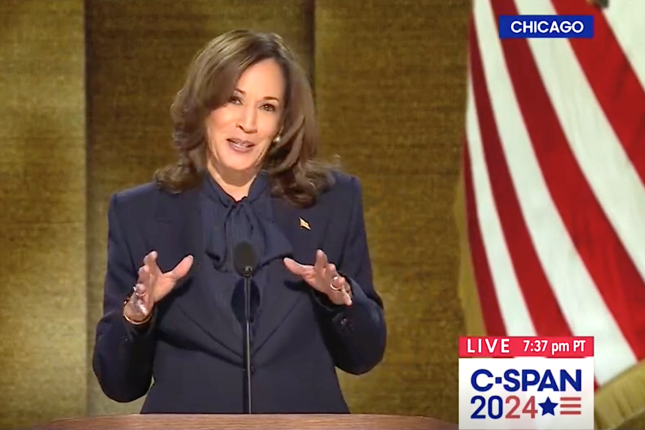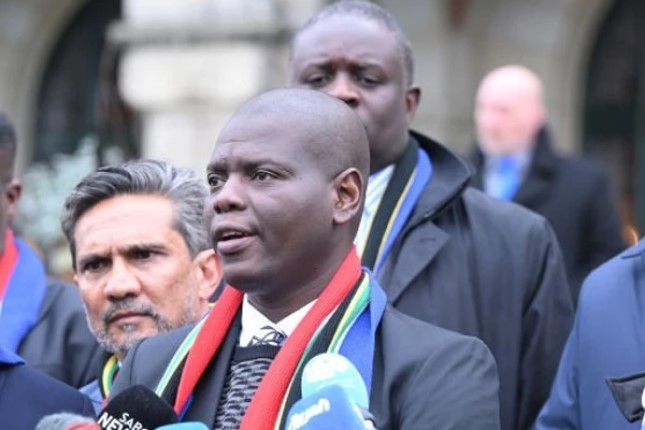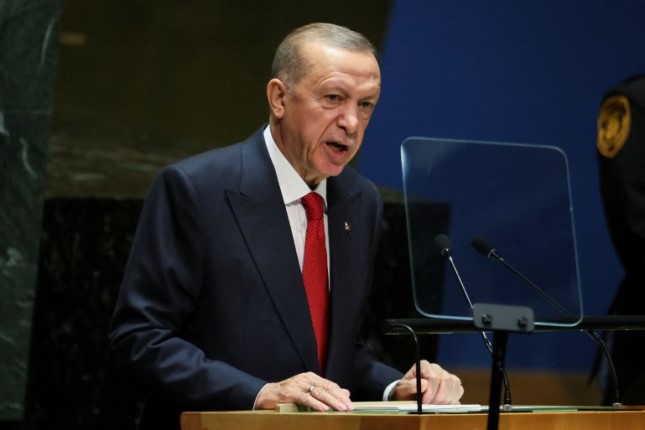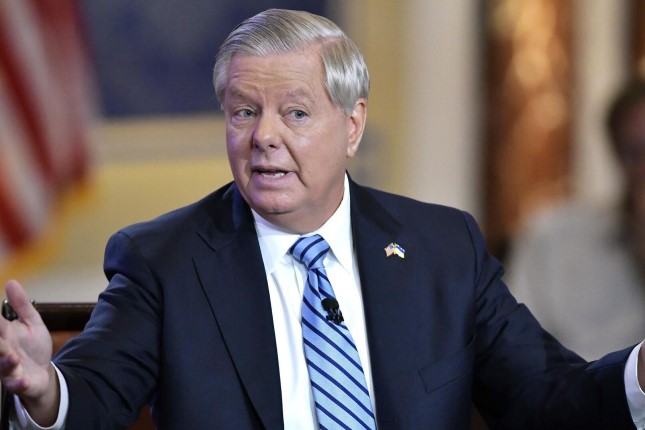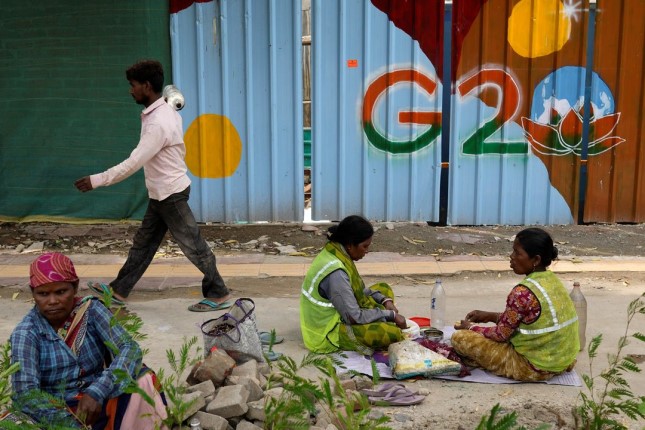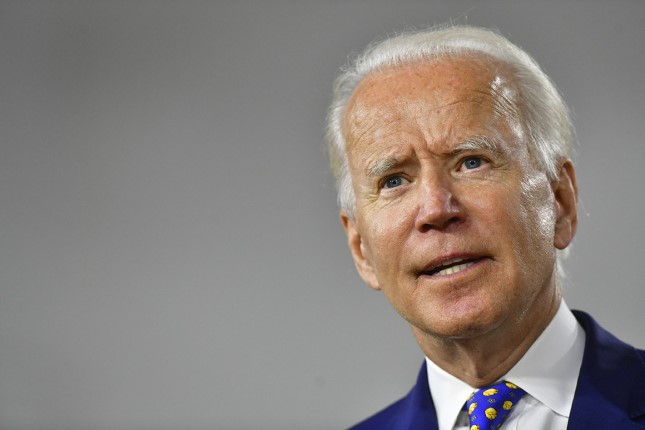On Tuesday morning, the Academy of Motion Picture Arts and Sciences (AMPAS) announced nominations for the 95th Academy Awards. The awards ceremony honoring films released in 2022 will be held Sunday, March 12.
In terms of nominations, the peculiar combination of Everything Everywhere All at Once (with 11) and All Quiet on the Western Front and The Banshees of Inisherin, with nine each, led the field. Tár received six nominations, including for best picture, lead actress, directing and original screenplay. The satire about the wealthy and celebrated, Triangle of Sadness, was nominated for best picture, directing and original screenplay.
Tuesday’s gathering, co-hosted by actors Riz Ahmed and Allison Williams and with several hundred press and publicists present at the Academy’s Samuel Goldwyn Theater in Beverly Hills, was the first in-person such event since 2016. For the past several years, the COVID-19 pandemic has obviously been a factor.
Hollywood, like the rest of official America, and particularly with a Democratic Party president in the White House, has chosen to go along with the pretense that the pandemic is over.
Perhaps to its own cost. By several accounts, the January 10 Golden Globes award ceremony acted as a super-spreader. Prominent actors Colin Farrell, Brendan Gleeson, Jamie Lee Curtis and Michelle Pfeiffer were among those attendees known to have been infected by the virus.
Dr. John Brownstein, an epidemiologist at Boston Children’s Hospital, told ABC News that the Golden Globes outcome was “sort of a window into what our future holds,” noting that the news was “not unexpected.” Brownstein continued: “You have indoor gatherings during a time when a lot of virus is circulating, whether it's cold or flu, and proximity without masking… you’re going to have active transmission of viruses.”
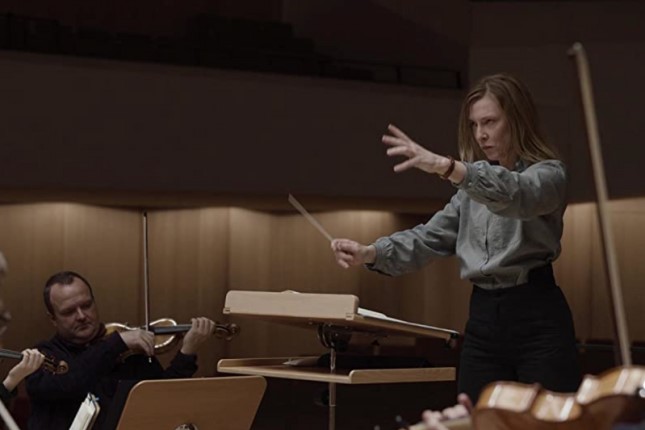
Cate Blanchett in Tár
The condition of Farrell, Gleeson, Curtis and Pfeiffer became public because they all had to cancel appearances at the 28th annual Critics Choice awards, held January 15. As a consequence, that awards program obliged attendees to submit a COVID test taken within 72 hours. Deadline pointed out that in taking the “unusual step,” the Critics Choice was “one of the first major awards [programs] in 2023 to require this added measure.”
The Hollywood Reporter (THR) commented that at the Academy Awards nominations ceremony on Tuesday, unlike “some recent awards season events, guests were not COVID-tested nor required to show proof of vaccination, but some chose to remain masked.”
As always, the nominations themselves reflect the assorted pressures and impulses at work in the film industry and the affluent social layers associated with it.

Woody Harrelson in Triangle of Sadness
At a time when the American political establishment, led by the Biden White House, is doing everything in its power to provoke a full-scale war with Russia, with potentially incalculable consequences, Edgar Berger’s staunchly anti-war All Quiet on the Western Front, from Germany, as noted above, was nominated in numerous categories. This has some significance. The horrors of war, after decades of relentless, bloody US military operations all over the globe, are no doubt on the minds of many, as they should be.
Meanwhile, box office success Top Gun: Maverick, as the WSWS noted, “a repugnant, empty film commissioned by the United States military to revel wholeheartedly in its war machine,” also received six nominations, including for best picture.
Tár and Triangle of Sadness, in quite different ways, are serious efforts that hold up a mirror to a corrupt and corrupting celebrity culture. Also nominated for best picture, Avatar: The Way of Water, Elvis and Top Gun: Maverick, in distinct ways, are products of an empty, superficial popular culture.
Identity politics is never far from the minds of Hollywood’s leading lights these days, although the 2015-16 #OscarsSoWhite campaign has receded somewhat, thanks to the honors bestowed on a variety of African-American, Latino, Asian and other minority performers and directors in recent years.
As the Hollywood Reporter observed, “the Academy can argue that its concerted efforts… to increase the diversity of its membership in the hopes of yielding a more diverse group of nominees, has yielded results.” This year’s most nominated film, the generally likeable fantasy-science fiction work, Everything Everywhere, “centers on an Asian family… Among its 11 noms are four for acting, and of those, three went to women and three went to people of Asian descent.”
Moreover, THR pointed proudly to the fact that “seven of this year’s 20 acting nominees are non-white: [Michelle] Yeoh [Everything Everywhere], who becomes the first woman who identifies as Asian to be nominated for best actress, and her costars [Ke Huy] Quan and [Stephanie] Hsu; plus [Ana] de Armas, the first Cuban ever nominated for a lead acting Oscar [Blonde]; and [Bryan Tyree] Henry [Causeway], [Angela] Bassett [Black Panther: Wakanda Forever] and [Hong] Chau [The Whale].”
No one these days hides the fact that de facto racial and gender quotas are in operation. Nor is there much of a pretense that—or concern with whether—the much-desired “diversity” is having or would have a positive artistic or social impact on filmmaking. Such an issue never comes up for discussion.
The Hollywood Reporter merely remarks that certain people were “upset that none of the five directing nominees are women… that only one of the best picture nominees is directed by a woman [Sarah Polley for Women Talking]” and that Gina Prince-Bythewood’s The Woman King and Maria Schrader’s She Said, for example, “wound up without a single nom.” That the two last-named films were dreadful and undeserving of awards is a possibility that goes discreetly unmentioned.
Money, needless to say, is another obsession in Hollywood, in fact the obsession that drives all the others. The pandemic and the predicament it created for movie distribution and the industry as a whole have exacerbated recent trends. More and more, the film industry lives and dies by the fate of a handful of blockbusters.
In that regard, the entertainment media eagerly reported Monday that James Cameron’s Avatar: The Way of Water, a tedious and banal effort, “has become the sixth movie ever to cross the $2B [billion] mark worldwide. It is also the filmmaker’s third to hit the milestone, alongside Titanic and the original Avatar.” (Deadline) According to the same source, in foreign markets, “Way of Water has become the No. 4 title of all time, jumping past Avengers: Infinity War and behind only Avatar, Avengers: Endgame and Titanic. This gives Cameron bragging rights to three of the top four movies ever at the international box office.” All of which simply goes to prove that today’s cultural crisis is global in scope.
Cameron’s film is one of the relatively few “bright spots” in a generally troubled film world. Variety points out that Tuesday’s nominations “were announced at a challenging time for the Academy of Motion Picture Arts & Sciences… and the film business itself. Ratings for the Oscars have declined precipitously in recent years, imperiling the broadcast’s licensing fees, the leading source of revenue for the Academy.”
Moreover, what the publication terms “adult-oriented movies” have struggled “at the box office during the pandemic.” Worsening the situation, streaming services that “helped fill the void left by the decline in theatrical revenues by providing a platform (and a blank check) for the artists behind them, are also shifting their priorities.” While independent filmmaking for a time found a home on platforms such as Netflix, Variety explains that now the video-on-demand streaming service and production company has “signaled to Wall Street that it will keep content spending relatively flat while it focuses on increasing profits.”
The Academy Awards nominations were announced in Beverly Hills, one of the country’s most expensive neighborhoods, in the immediate aftermath of a spree of mass shootings in California that left dozens dead.
The US is being torn apart by social contradictions that no amount of technical wizardry and bombast, on the one hand, and smiling complacency and self-congratulation, on the other, can keep at bay or conceal. War, the pandemic, the threat of fascism—none of this makes a discernible dent on the well-heeled film industry officialdom, which went about its business Tuesday. Deeper down, both among actors, writers, directors and crew members, as well of course far more so within the general population, something quite different—profound, explosive disquiet and anger—prevails.
Main photo: Edin Hasanovic, Albrecht Schuch and Felix Kammerer in All Quiet on the Western Front.
Source: World Socialist Web Site.




















